- Home
- slideshows
- miscellaneous
- Migrants detained at the border are kept in freezing cells nicknamed 'iceboxes' - here's what we know about them
Migrants detained at the border are kept in freezing cells nicknamed 'iceboxes' - here's what we know about them
CBP and Border Patrol facilities at the border are known for being extremely frigid.

Immigrants are often only given thin foil sheets made out of Mylar to stay warm.
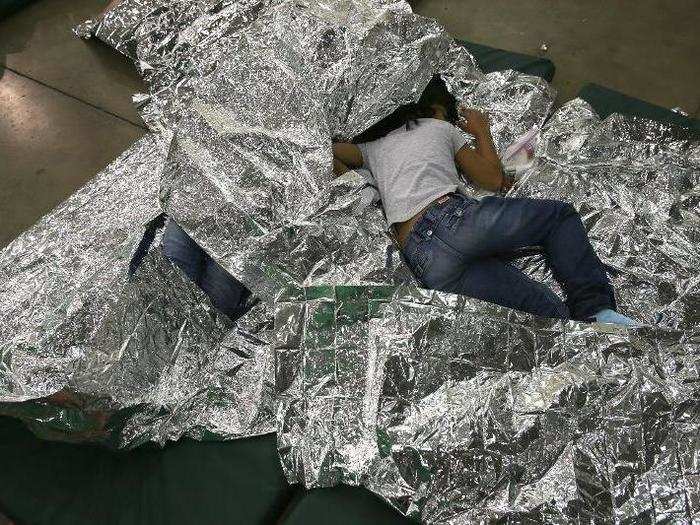
According to a September report by Human Rights Watch, these "blankets" are similar to those given to marathon runners. They're paper-thin and metallic.
"The bedding that they supply is a thin Mylar blanket which doesn’t provide sufficient insulation to be able to get comfortable enough to sleep," an immigrant told HRW.
In federal court testimony, an assistant chief patrol agent said the blanket "is not an insulation barrier."
"You're not going to lay it down on a surface and lay down on it thinking it will keep you warm. When you wrap up in it, it keeps the heat in. It's a barrier. It keeps it in. If you are lying down on a snowbank or something like that, obviously that is different," the officer said. "If you're lying on cold concrete, it will be no different than lying on the ground."
Immigrants are sometimes given mats to sleep on. But many have reported they often have to sleep on the concrete floor.
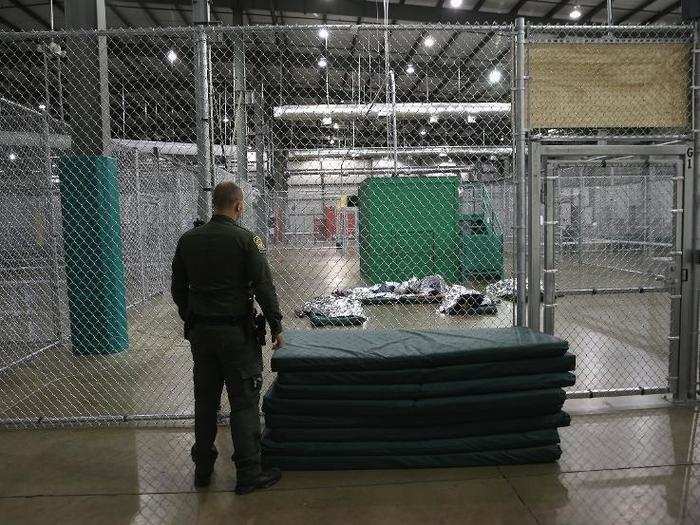
Images often show immigrants sleeping on green mats, covered by Mylar sheet, in these holding cells. But many migrants have said they're often forced to sleep on the cold concrete floor.
According to the HRW report, most women interviewed said there were no mats available in their detention centers.
“The last night they took the mats away, maybe because they had too many people there. They didn’t explain why they took the mats,” one woman, identified as Nelly from El Salvador, said.
"There were no mats. We slept on the bare floor. It was cold, really cold," another woman, Alcina, from Guatemala, told HRW.
The lights in the holding cells are on 24/7.
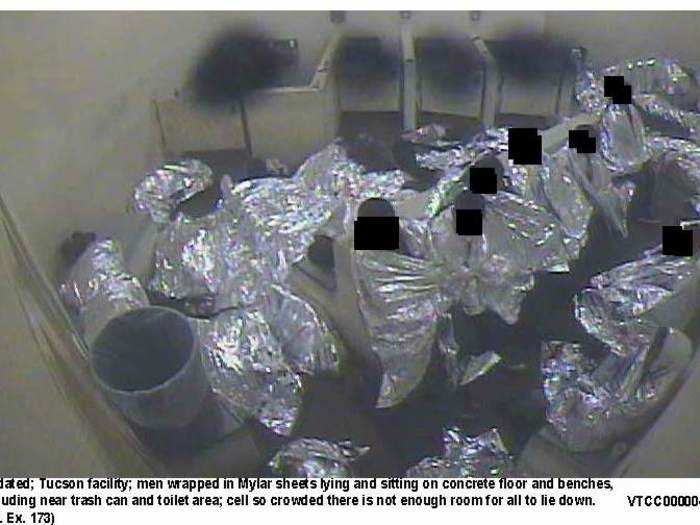
According to the 2015 lawsuit, lights at these facilities are kept on 24/7, making it harder to sleep. Guards also often wake up detainees regularly during the night.
"It was also difficult to sleep because we were called out four times for interviews over the course of the night," one migrant, identified as G.F.G. in the lawsuit, said. "One of those times we had to wait five and half hours … we had to stand for those five and half hours. We were already tired from walking in the desert and I was exhausted from standing and holding my daughter for so long."
Migrants have said they receive no soap or towels, meaning they can't wash their hands properly after using the toilet or eating.
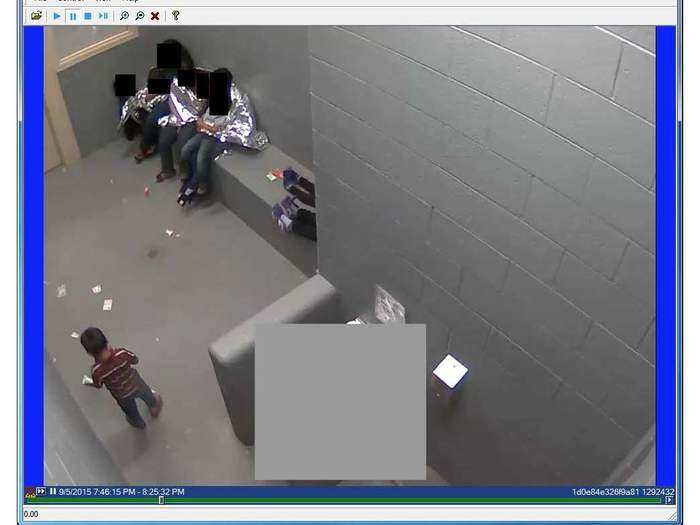
"There was one sink but no soap or towels. Most people had spent a lot of time in the desert and were very dirty, but it was impossible to really wash your hands or clean yourself after using the toilet. The conditions became disgusting with so many people packed into a cell in this way," an immigrant identified as N.G.P. said in the lawsuit.
Immigrants detained in these facilities often fall sick, despite being healthy when arrested. According to a lawsuit filed this year against CBP, medical care isn't the best.
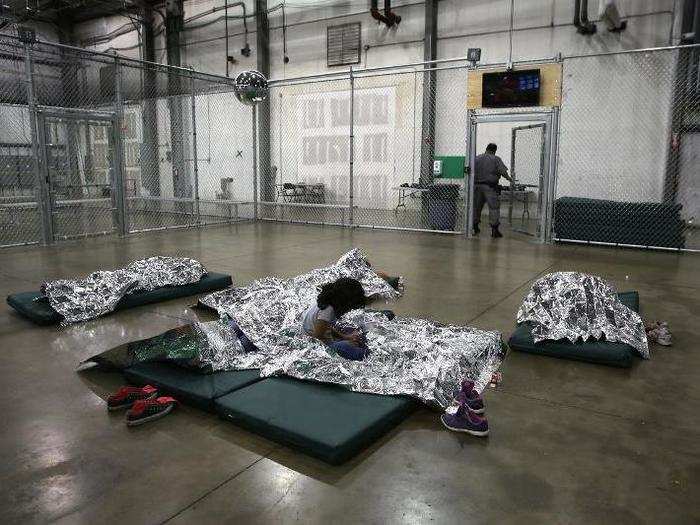
This year, a 21-month-old girl died two days after being released from a Border Patrol detention facility in Texas. According to a lawsuit against CBP filed on behalf of Mariee, the little girl, and her mother, Mariee had been healthy when she arrived to the US in March. She had never had any significant medical conditions before.
Mariee and her mother were held in an immigration facility named Dilley, in Texas, with five other mothers, each with a child. A child in the cell was already sick, but the women and their children were not provided any protective masks. Mariee fell sick within a week.
The child, who was seen by at least five different medical professionals during her stay at Dilley, was diagnosed with an ear infection and accute bronchiolitis. She was given Tylenol and an antibiotic she couldn't keep down, as well as Vicks VapoRub, an ointment that specifically says should not be given to children under the age of two. Mairee lost weight, vomited frequently and often ran fevers.
Mariee and her mother left the facility nearly a month after arriving. They were flown to New Jersey, but Mariee wasn't medically cleared for travel. Upon arriving to New Jersey, the girl was taken to an emergency room where she was diagnosed with bronchiolitis and pneumonia. She spent nearly six weeks in the ICU and died in May.
After two Guatemalan children died in the last month under Border Patrol detention, Homeland Security Secretary Kirstjen Nielsen has ordered medical checks on all migrant children in custody, though it's unknown how many are currently detained.
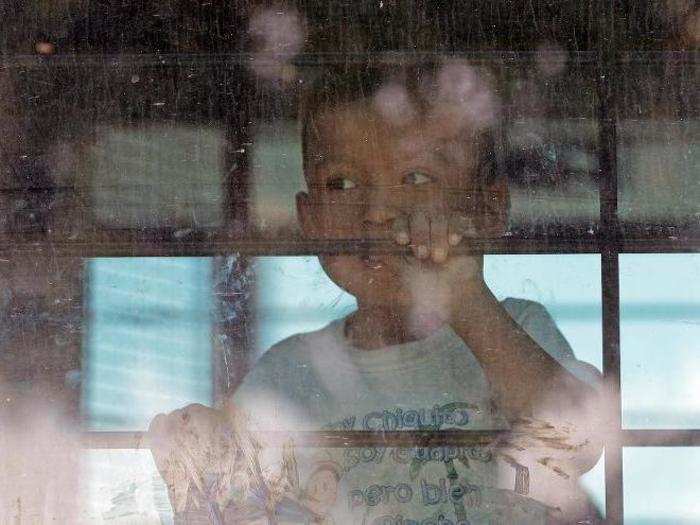
Nielsen said in a statement Wednesday afternoon that she has requested the CDC "investigate the uptick in sick children crossing our borders." She also asked that the Coast Guard review the current medical programs migrants receive and that the Pentagon provide medical support staff.
An 8-year-old boy, identified as Felipe Gómez Alonzo, died on Christmas Eve at a Border Patrol detention center in New Mexico. A 7-year-old Guatemalan girl named Jakelin Caal Maquin reportedly died on December 8 while in detention too.
Popular Right Now
Popular Keywords
Advertisement